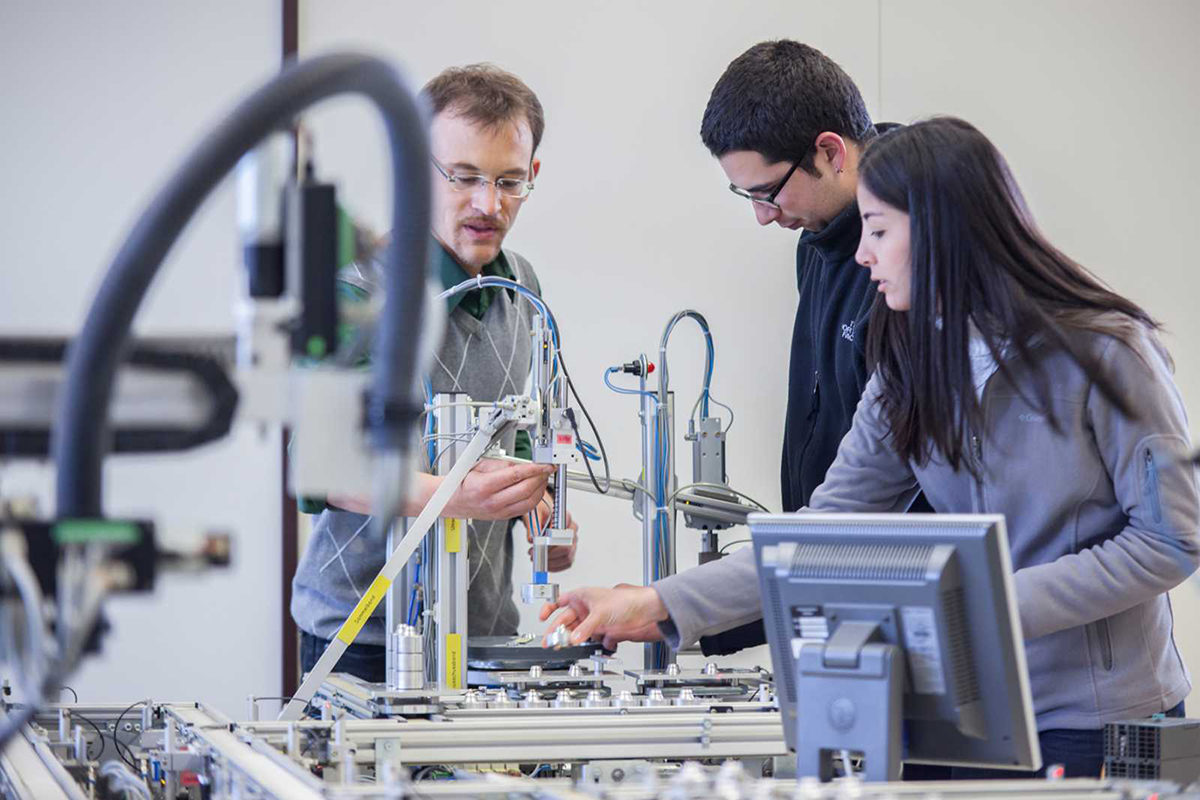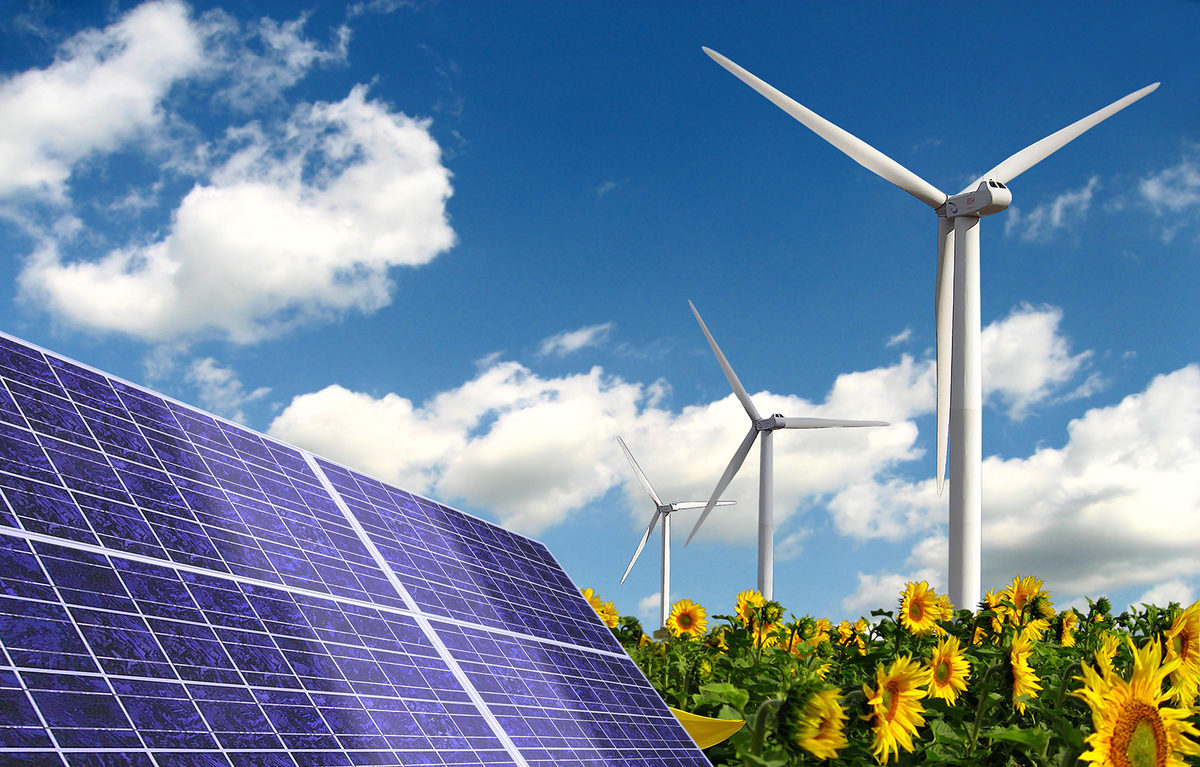Automation of the future
The specialisation in energy and automation technology provides you with the tools for successful automation, starting with data acquisition using sensors and methods of control engineering up to the control of electrical drives. In the FPGA Design, Microprocessor Technology and Control Technology modules you will learn how to implement this automation with concrete components in an application-oriented manner. The numerous internships of the mentioned events convey the direct application reference, among others in the model factory of the department.
Whereas in traditional automation technology the focus was on the automation of individual systems and devices, more and more systems are networked in modern approaches in order to be able to react flexibly to changes (e.g. individual customer requests) and save resources. In this trend, which is known under numerous buzzwords such as Industry 4.0, Smart Factory or digitalization, automation solutions not only communicate more and more with each other, but also increasingly with adjacent areas such as purchasing, sales and logistics or across company boundaries. The resulting potentials, challenges and approaches to solutions are particularly addressed in the Digital Factory elective module.
With this practical offer we make you fit for the automation of the future.
Energy of the future
Despite many small steps in the right direction (e.g. the expansion of photovoltaics and wind energy), the energy turnaround in Germany has actually only just begun.
The share of renewable energies is only significant in the area of power generation, the transmission grids for the future (and e-mobility?) have not yet been built and their intelligent control exists only in small (model) areas.
Within the field of study "Energy and Automation Technology" you have the opportunity to focus your personal education on the field of "Energy Technology" and to acquire in-depth knowledge and sought-after skills in the field of classical energy technology (power plants, grids) as well as in the field of renewable energies (photovoltaics, wind power, regenerative energy generation systems) up to energy storage technology. In addition to the general basic subjects (mathematics, electrical engineering, electronics, computer science and physics), your studies at the Faculty of Electrical Engineering and Computer Science also provide you with subject-specific basics such as sensor technology, control engineering, electrical machines, power electronics and control engineering.
This means that you are ideally equipped to deal with other exciting topics such as smart grids or energy efficiency in the master's programme.




